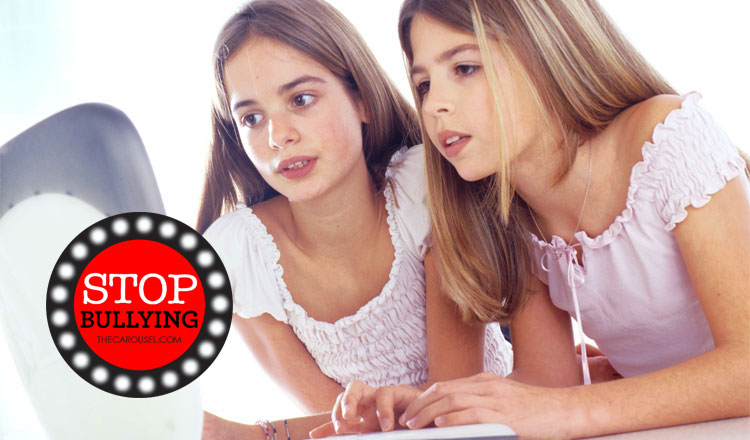Cyber-safety is a growing concern for both parents and children, particularly when strangers start connecting with your child online. So it’s important we understand it properly and find solutions fast. Here’s what you need to know…
In this post of The Carousel’s Anti-Bullying series, we spoke with Jeremy Blackman, Senior Cybersafety Specialist with The Alannah and Madeline Foundation, a national charity protecting children from violence and its devastating effects to give advice on your bullying experiences. Cyber-safety is closely linked to bullying and of great relevance, with 32% of teenagers rating ‘unwanted attention from others’ as the top online concern (on social networking sites), according to the Child Protection and Social Networking report by Monash University.
What’s even more alarming is that this ‘unwanted attention’ is not only from friends and peers, but often complete strangers randomly contacting them through social networking sites like Facebook, Instagram, Twitter and other sites. In fact, teenagers rate one of their highest cyber-safety concerns as being approached by people they don’t want to interact with.
This week, Alissar, 37, asks for advice about a ‘stranger’ befriending her daughter online.
WHEN STRANGERS ‘FRIEND REQUEST’ YOUR TEEN
Q. ‘My 13 year-old daughter ‘friended’ someone she didn’t know online last month. Now this person is constantly interfering with conversations she has with her real friends, and has started to ask really awkward – even unpleasant – questions. I told her to ‘unfriend’ the person, which she did, but some of my daughter’s friends are still connected with them – so the questions haven’t stopped. What can she do? What advice can I give?’
- In this case, ‘taking it offline’ might be the best option. Sometimes, online networks can be very complicated and intertwined. Your daughter should talk with her friends (by phone or in person) to make sure they have all unfriended this person. If he/she is known personally by one of them that will also be revealed and at least she’ll know who the person is, and can then make a more informed decision about what to do next. If this doesn’t solve the problem, users and posts can often be ‘flagged’ or ‘reported’ as inappropriate, which may help discourage further posts – especially if this person’s account is suspended as a result. Ultimately, everyone should feel safe online, so this is a great opportunity to openly discuss with your daughter the importance of actively managing her online friends, and making sure her private information is under control.
Need more help?
Great Australian resources for parents can be found at:
- The Alannah and Madeline Foundation is a national charity protecting children from violence and its devastating effects.
- Victoria Department of Education and Early Childhood Development
- Youth BeyondBlue
If your child needs to speak to someone about their experience Kids Helpline is Australia’s only free, private and confidential, telephone and online counselling service specifically for young people aged between 5 and 25, Kids Helpline can be contacted on 1800 551 800.
For more anti bullying tips click here.
Has your child been approached online by strangers trying to connect with them? How did you manage the situation?









